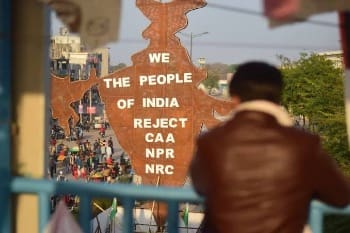
The Supreme Court fixed the hearing in 220 petitions challenging the Citizenship Amendment Act (CAA) of 2019 on October 31 and said it will refer the case to a three-judge Bench.
After a hiatus of many months, the petitions came up before a Bench of Chief Justice of India U.U. Lalit and S. Ravindra Bhat on Monday.
The apex court issued a slew of directions to compartmentalise a batch of pleas challenging the CAA for ease of advancing submissions by counsel.
Chief Justice Lalit asked the parties, including the Union, to draw a “road map” highlighting the issues involved in the case, their division into various segments and the formulation of questions of law.
Lawyers said petitions linking the CAA with the Assam National Register of Citizens (NRC) ought to be a different segment of its own and heard separately.
“As projected by various learned counsel, the matters need to be put in different compartments so the submissions can be confined to those segments,” said the Bench of Chief Justice of India UU Lalit and Justice S Ravindra Bhat.
The Bench directed for a complete list of cases pertaining to the issue to be prepared by the Solicitor General of India (SG), after which the same would be segregated, Bar and Bench reported.
The Citizenship Amendment Act (CAA) will allow non-Muslim migrants and refugees from India’s neighbouring countries to secure Indian citizenship if they arrived in India before December 2014. Read together with a proposed National Register of Citizens (NRC), many feared the CAA-NRC plans were aimed at disenfranchising the Muslim minority.
The passage of the CAA and fears over a potential NRC triggered a wave of peaceful demonstrations by millions of Muslims across India.
Muslim men and women lead the sit-ins at various places, including at Shaheen Bagh, a working-class Muslim-dominated neighbourhood in the national capital, which turned into the epicentre of the protests.
Critics said the CAA violated India’s secular constitution while United Nations’ experts called the law “fundamentally discriminatory”.



